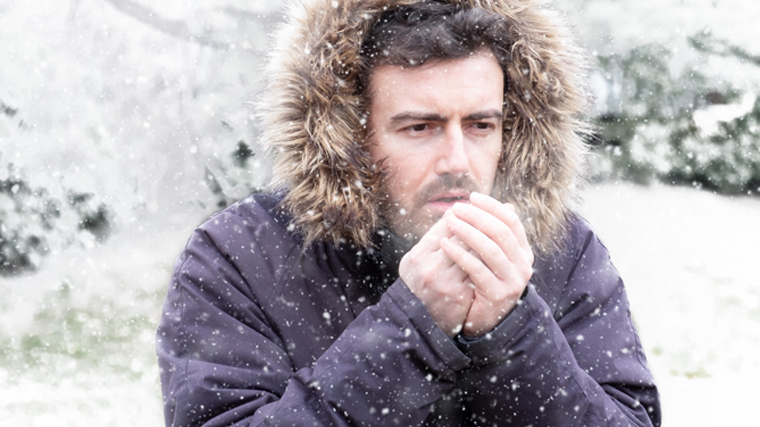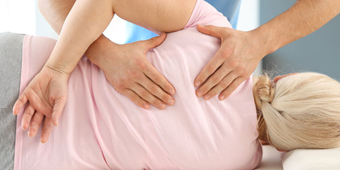Avoiding Dangerous Hypothermia: What You Can Do

Answer a few questions and we'll provide you with a list of primary care providers that best fit your needs.
It’s uncomfortable to be cold. But it’s downright dangerous when your body temperature is less than 95 degrees. Called hypothermia, this abnormally low body temperature occurs when your body loses more heat than it produces, explains Kimberly Wascak, MD, emergency medicine physician at Miami Valley Hospital Austin Boulevard Emergency Center
How Cold Does It Need To Be To Get Hypothermia?
There’s no specific outside temperature that puts you at risk of hypothermia. “It’s more related to other factors, like your overall health,” explains Dr. Wascak. “It can actually be warm outside, but if you’re wet and it’s excessively windy, you could develop hypothermia.”
Wind increases heat loss, as does sitting on a cold surface, or being immersed in cool water. Sudden immersion in very cold water can be fatal in as few as five minutes. The elderly can become hypothermic in rooms that are 55 to 60 degrees if they don’t move around often.
What Are the Symptoms?
Shivering and teeth chattering are early signs of hypothermia. “Your body shivers because it’s trying to produce heat,” says Dr. Wascak. As your body temperature continues to fall, you’ll notice:
- Shivering stops
- Confusion
- Clumsy movements
- Excessive sleepiness
- Breathing is faster or slower than normal
- Heartbeat is faster or slower than normal
Because symptoms develop gradually, they may go unnoticed, even by companions of those who have hypothermia. Related to hypothermia (which can affect every organ of your body) is frostbite, an injury to the skin due to freezing.
If not treated, hypothermia can result in a coma. Death can occur at body temperatures below 88 degrees.
What Can I Do To Prevent Hypothermia?
“Be prepared,” says Dr. Wascak. “If you’re going to be out in the cold, don’t stay too long. And if there’s a possibility of getting stranded, think in advance about what you’ll do. Insist kids take frequent breaks if they’re playing in the snow, for instance. And dress them in warm layers. If clothes become wet, change out of them as soon as possible,” she adds.
Wear a hat and drink warm fluids to keep your body warm. Exercise to increase your body’s production of heat.
“I always keep a pair of warm pants, hat, gloves, and a warm coat in my car,” says Dr. Wascak. “If I were stuck on the side of the road, they would keep me warm until help arrived.”
Who Is More Vulnerable To Hypothermia?
- The very young and very old
- Anyone lying immobile in a cold environment, perhaps due to a seizure, intoxication, or low blood sugar
- Those suffering from widespread infection, or an underactive thyroid
- Those taking alcohol or certain drugs (like antidepressants or pain medications)
If you think someone is in danger of hypothermia, Dr. Wascak recommends:
- Move them to a warm place.
- Remove wet clothing and cover them with warm, dry blankets.
- Give them a warm beverage if they are awake and alert, but not if they are confused or unresponsive.
- Turn up the heat indoors to warm the air they breathe.
- Get medical attention if the person shows any signs of confusion, sleepiness, or their breathing or heartbeat is faster or slower than normal.
To learn more about hypothermia, talk to your doctor or health care provider or search for a provider.
Answer a few questions and we'll provide you with a list of primary care providers that best fit your needs.
Source: Kimberly Wascak, MD; Miami Valley Hospital Austin Boulevard Emergency Center; Merck Manual; Hypothermia and Cold Temperature Exposure, Healthwise, 6/26/2019; Cold Temperature Exposure, Healthwise, 6/26/2019





